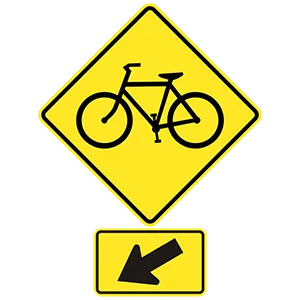Motorcycle Test | License NJ 2026 | FREE Online Practice! #12 Page 2 of 7
Take this FREE motorcycle test (license in NJ 2026) to check your knowledge of the road rules. To improve your results, download a motorcycle handbook online, study theory, and practice for free on our website. Still worried about how to get a motorcycle license in New Jersey in 2026? Check our website for more sample tests, train as much as possible, and boost your grades!
8 . A skidding rear tire:
A skidding rear tire is a dangerous condition that can result in a violent crash and serious injury or death. Too much rear brake pressure can cause the rear wheel to lock. As soon as the rear wheel locks, your ability to change direction is lost. To regain control, the brake must be released.
9 . What is the single most important piece of equipment that a rider must wear?
A helmet is the single most important piece of safety equipment a rider can wear. One in five motorcycle crashes cause head and neck injuries. Wearing a helmet can dramatically improve your chances of survival.
10 . This road sign means:

This sign (with the arrow below) indicates the location of a bicycle crossing/path. Drive with caution around this sign because bicycles likely regularly cross or ride beside traffic in the area.
11 . When you have mounted your motorcycle, you should do all of the following, except:
After mounting your motorcycle, you should make sure the clutch, throttle, horn, and brakes all work properly. Clean and adjust the mirrors and make sure that the fuel supply valve is open.
12 . Which of the following types of clothing can help you to be seen by other drivers?
Be sure to wear gear that can help you and your motorcycle to be spotted by other road users. Bright, reflective clothing can make it easier for others to see you.
13 . What is often found in the center portion of the lane?
Drippings from cars tend to form an oily strip in the center of each lane. Unless conditions are wet, it is usually still safe for a motorcycle to operate on the center strip.
14 . If the road is wet, you should avoid:
Oily drippings from cars and trucks collect in a strip in the center portion of a lane. This strip usually still provides enough traction for motorcyclists to operate safely, except when the road is wet. The strip is usually narrow enough that you can ride to its side and still be in the center portion of the lane.
See the exact questions that will be on the 2026 New Jersey DMV exam.
99.2% of people who use the cheat sheet pass the FIRST TIME
Jeneen was tired of paying $5/gallon. She got herself a scooter that required the motorcycle license. She studyed the motorcycle test cheat sheet and passed her test the next day!
Christopher tells us how he knew nothing prior to obtaining the motorcycle study guide, and he only got one question wrong because he clicked on the wrong answer by mistake.



